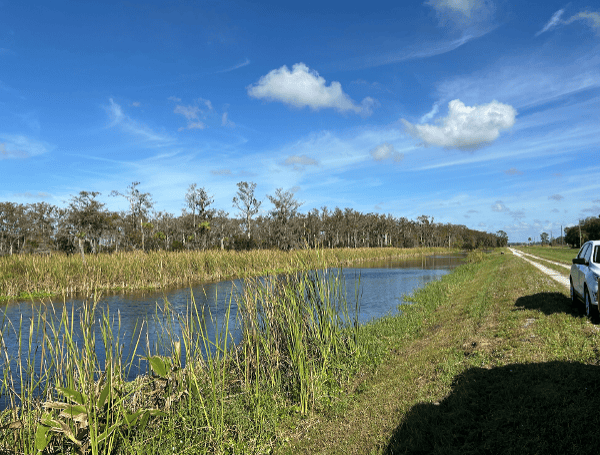
University of Florida scientists have secured a $300,000 grant from the National Science Foundation to address one of South Florida’s most pressing environmental challenges: excess phosphorus in freshwater ecosystems such as the Everglades.
The two-year project will focus on identifying and advancing treatment technologies to mitigate phosphorus pollution while engaging regional stakeholders to ensure practical implementation and sustainability.
Phosphorus is a critical nutrient for all life and a key component in DNA, commercial fertilizer and food production. However, too much of it poses significant risks to fragile freshwater ecosystems, such as lakes and wetlands within South Florida.
READ: UF/IFAS Extension Helps Florida Farmers Reduce Water Use By 40%
The project represents a significant step toward protecting freshwater ecosystems, like the Florida Everglades within South Florida, safeguarding biodiversity and promoting sustainable water management practices, said Jehangir Bhadha, an associate professor of soil, water and ecosystem sciences at the UF Institute of Food and Agricultural Sciences Everglades Research and Education Center.
“Natural ecosystems like the Florida Everglades are unique, with a mixture of diverse habitats, including sawgrass sloughs and mangrove forests, however, excess nutrients such as phosphorus can threaten this fragile ecosystem leading to impaired water quality,” said Bhadha “Working with local stakeholders to develop potential treatment technologies to mitigate phosphorus losses will be critical to protecting these ecosystems.”
The grant opens yet another door providing the next steps in a national research effort Bhadha and a team of scientists are working on to promote phosphorus sustainability across the United States as part of the multi-institution Science and Technologies for Phosphorus Sustainability (STEPS) Center established in 2021. Bhadha and Sandra Guzmán, an agricultural engineer and assistant professor at the UF/IFAS Indian River Research and Education Center, were tapped for their expertise to join the national effort.
READ: University Of Florida Tops Nation In Agricultural Sciences Research For 6th Consecutive Year
This phosphorus mitigation project aims to improve water quality challenges by bridging the gap between innovative technologies and practical applications based on the needs and priorities of key stakeholders in this region, said Bhadha.
The project will evaluate existing commercial products and new technologies that can absorb phosphorus from water.
Through lab research, literature review, and direct engagement with end users that include the general public, regulators, landowners, and technology developers, the goal is to find and recommend the best methods for capturing and potentially recovering phosphorus in large water systems within South Florida.
Community engagement will be central to the phosphorus mitigation initiative project.
“Addressing the needs of local stakeholders and building from lessons learnt from past efforts will help develop and design interventions that will be most effective in the region,” said Bhadha.
READ: University Of Florida SmartAg Certificates Prepare Students For Agriculture’s AI Job Market
The team will conduct one-on-one interviews, group learning sessions, focus group meetings, site visits and workshops, leveraging UF/IFAS’ Extension services to foster meaningful collaboration. These efforts will yield selection criteria for evaluating new phosphorus capture technologies, with the potential for further investigation.
“By incorporating stakeholders’ perspectives and values early in the process, the project aims to ensure the readiness and adoption of innovative clean water technologies,” said Bhadha.
This initiative builds upon over 35 years of Everglades restoration efforts lead by the South Florida Water Management District, with the potential to expand its impact beyond South Florida. The findings could also inform phosphorus mitigation strategies in drinking water and wastewater systems nationwide.
“With collaborators from University of Florida, North Carolina State University and Arizona State University, this project will lead the way in the responsible design, development, and deployment of treatment technologies for phosphorus mitigation in South Florida and beyond,” said Bhadha.
Please make a small donation to the Tampa Free Press to help sustain independent journalism. Your contribution enables us to continue delivering high-quality, local, and national news coverage.
Connect with us: Follow the Tampa Free Press on Facebook and Twitter for breaking news and updates.
Sign up: Subscribe to our free newsletter for a curated selection of top stories delivered straight to your inbox.

